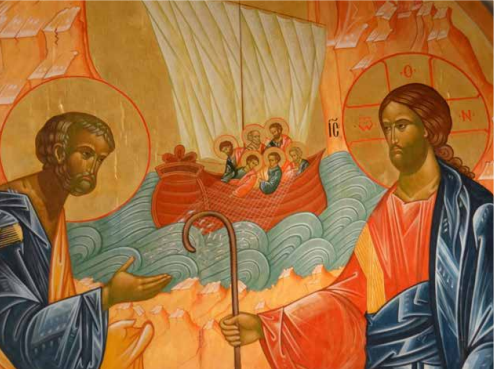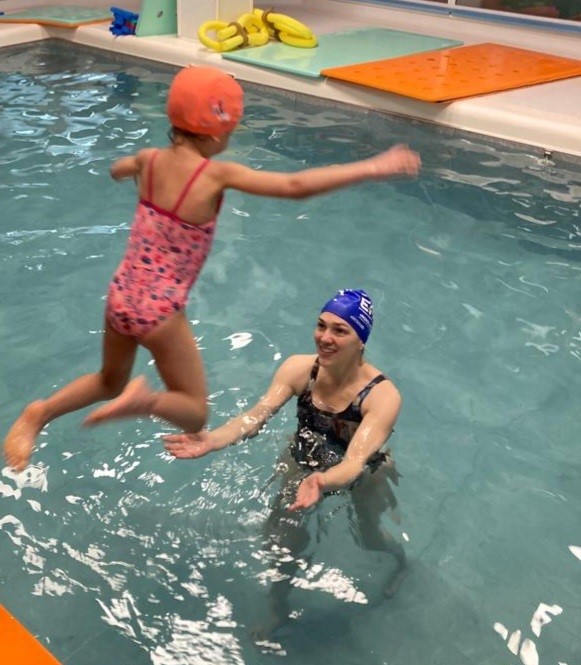How I live Easter today
A reflection and testimony by Susanna Paccagnini
For me, Easter means starting again with Jesus; experiencing, in the encounter with the Lord, his infinite power of love.
For the Son of Man came to seek and to save what was lost (Lk 19:10); to seek and to also save the parts of ourselves that were lost.
I was struck in this regard by the closing passage of John’s Gospel (Jn 21:15-17).
After the death and resurrection of Jesus, Peter and the disciples meet again in Galilee, and Peter invites the others to go fishing. They do not fish. In the morning they meet the risen Jesus.
Peter, do you love me?
Jesus asks Peter this unexpected question, but only after he has sought and rebuilt the relationship with Peter and the other disciples. Indeed, he invites them to cast their nets again and the catch is plentiful; then he invites them to eat: a meal together on the beach with the bread brought, broken and distributed by Jesus and the fish that have just been caught.
Peter, do you love me?
Jesus speaks to Peter and only to him, in a loud voice, in front of everyone (not away from them)!
Peter, do you love me?
Peter had betrayed by denying three times all relationship with the Lord…
And for Peter, I imagine, this denial of the Lord burned him; it prevented him from standing before Jesus with ease, with freedom, with his whole being.

I imagine that a part of Peter had somehow permanently broken down this relationship. And in Peter’s heart, right there, I imagine, there was a block that conditioned him, that obscured his relationship with the Lord. Peter no longer felt worthy. Peter, so direct, so crystalline, so capable of great impulses, found himself – when he wanted the opposite – small, blocked, unable to speak, to expose himself, to throw himself again with all his being into the relationship with the Lord.
Peter, capable of remarkable outbursts… by verbalising his love for Jesus, I imagine that he felt blocked, no longer up to it; as if, deep down, he was ashamed.
Peter, do you love me?
Jesus, with his simple question, but repeated three times with different facets, almost pushes him to dare again, to launch himself into a relationship with Him again, to decentre himself at least a little. He almost suggests words to him, offers him the way to enter into a relationship again.
And Peter follows this path opened up by Jesus by responding three times to the words Jesus suggests to him, choosing as an expression, however, that of “being his friend”.
Peter, are you my friend?
Jesus then adapts, he lowers himself, reaching even in style the type of expression chosen by Peter.
And there Peter opens himself completely, abandons himself to the love invoked by the Lord and to the very deep knowledge that the Lord has of Peter’s heart and of each one of us.
You know that I am your friend.
The Lord urges us to express all that we are, he wants to take care of us in our dignity as free women and men, and so he leads us to overcome, in his forgiveness, the most insurmountable limits; he believes in each of us so much that he reaches out to us everywhere, that he knows how to open up new paths precisely from our limits (“Be the shepherd of my sheep”).

Recently I attended a swimming lesson for one of my granddaughters who has coordination problems. Towards the end of the hour, the teacher – whom my granddaughter loves very much – stood in the pool, inviting my granddaughter to jump into the pool directly from the edge, keeping an upright posture (avoiding sitting down and sliding). The other children jumped towards the teacher without hesitation: everyone was then “fished out” and brought back to the edge. My niece was afraid to jump and, leaning towards the pool, tried to reach the teacher’s hand with her arm (she was looking for support, a mooring). Once, twice, three times… it always happened that she ended up squatting, sitting down and sliding into the pool in a sitting position. So several times. Finally, after several attempts, after seeing the other children jump into the water from the edge without fear, after seeing the teacher ready to welcome everyone, smiling, serene, confident in everyone’s potential …. she jumped. She did it: what happiness!

It seems to me that the relationship of trust between my niece and the pool attendant, the attitude of the arms ready to welcome her as soon as she had dived in, hinted at an encounter with the risen Lord.
For me, Easter is about experiencing this capacity of the Lord to intercept – to recover – everything that is in me, even those parts that I would like to forget, abandon, hide, deny; those parts that make me less free.
To experience, with the Lord, that all that I am “is precious in his sight” (Is 43:4) and, from there, to begin again in his footsteps.
Article written by Susanna Paccagnini, regional delegate of the secular grouping Our Lady of the Cenacle.
